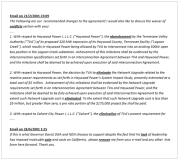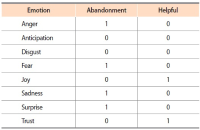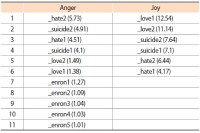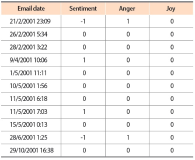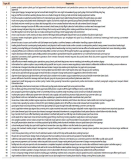ISSN : 2287-9099
Vol.7 No.1

Abstract
This study explored journal publishing and authorship by South Korean early career researchers (ECRs) in the field of library and information science (LIS). This research analyzed relevant journal publication data and conducted interviews to obtain information on the experiences and opinions of ECRs. Results indicated that South Korean ECRs in LIS were highly productive. This was evidenced by their annual publishing rate of 2.04 articles per person. In addition, Social Science Citation Index (SSCI) publications were produced at an annual average of 0.26 articles per person, while the quartile ratings for SSCI journal publications were also relatively high. However, unlike the trends seen in other academic fields, their collaborative research efforts were not considered very high because such efforts did not correspond to half their total publications. ECRs often participate as lead or corresponding authors despite being new researchers. ECRs are publishing first in the journals approved by their universities. These researchers cannot receive proper credit if the journal was not approved in this manner. ECRs are particularly disadvantaged when publishing in international journals corresponding to specific areas that are not on the SSCI list. By examining the journal publishing and authorship efforts of ECRs, this study discovered a variety of difficulties that should be addressed. For example, South Korean universities do not currently have cooperative research guidelines to solve authorship problems. The results from this study can serve as a basis to establish academic publishing and authorship policies while promoting scholarly communication in LIS and other scientific fields.

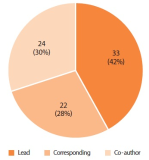


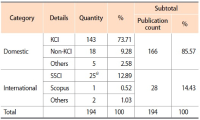
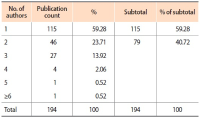

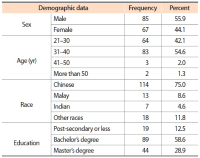
Abstract
Dengue infection is becoming a serious global health threat. Public awareness is a pre-requisite for the successful implementation of dengue prevention programs. The main purpose of this study was to investigate dengue-related information needs and seeking behavior of the general public in Singapore. Some areas covered by this study were: importance of dengue-related information needs, preferred channels for seeking information, and respondents’ perceptions of using dengue-related information. A questionnaire was used for data collection and 152 individuals participated in this study. Data analysis showed that the most sought after information concerned: dengue-related medicines, primary symptoms of dengue infection, and different possible treatments. The popular channels for seeking information were: websites of hospitals and other health agencies, the social media, television, and newspapers. Medical staff, such as doctors and nurses, were trusted for providing accurate information. Although credibility of social media was considered low, respondents were using it due to its easy accessibility. The findings of this study will be useful to government health departments in Singapore as well as in other countries suffering from dengue, hospitals, and public welfare agencies involved in public health awareness campaigns.



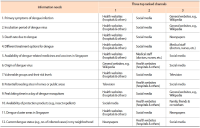
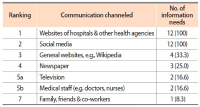



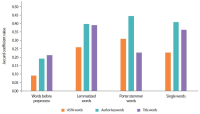
Abstract
Information retrieval is the challenge of the Web 2.0 world. The experiment of knowledge organisation in the context of abundant information available from various sources proves a major hurdle in obtaining information retrieval with greater precision and recall. The fast-changing landscape of information organisation through social networking sites at a personal level creates a world of opportunities for data scientists and also library professionals to assimilate the social data with expert created data. Thus, folksonomies or social tags play a vital role in information organisation and retrieval. The comparison of these user-created tags with expert-created index terms, author keywords and title words, will throw light on the differentiation between these sets of data. Such comparative studies show revelation of a new set of terms to enhance subject access and reflect the extent of similarity between user-generated tags and other set of terms. The CiteULike tags extracted from 5,150 scholarly journal articles in marine science were compared with corresponding Aquatic Science and Fisheries Abstracts descriptors, author keywords, and title terms. The Jaccard similarity coefficient method was employed to compare the social tags with the above mentioned wordsets, and results proved the presence of user-generated keywords in Aquatic Science and Fisheries Abstracts descriptors, author keywords, and title words. While using information retrieval techniques like stemmer and lemmatization, the results were found to enhance keywords to subject access.







Abstract
Open access is a paradigm whereby the electronic versions of scholarly publications are made freely accessible without any restrictions. It is actively promoted globally and is also promoted domestically in accordance with this global trend. However, there is a growing need to evaluate existing activities and to seek policies for the steady spread of open access. This study examines the necessity of switching to a national repository from existing institutional repositories through policy direction analysis of open repositories. We examined domestic open access policies by analysing various overseas cases and the situation in South Korea. Finally, we determined the validity of investment in a national repository by analysing its social and economic impacts using the modified Solow-Swan model. The main parameters for applying the modified Solow-Swan model were estimated, and the domestic research and development expenditure was predicted via a regression method. Then, we applied a range of rate of returns to research and development (10% to 50%) to various scenarios and examined the effects of increasing accessibility and efficiency by 1% to 10%. We found that the implementation of a national open access repository in South Korea would have a substantial impact (to the tune of 147 billion won), without considering the potential costs of such a repository. Based on the estimates of the social and economic impact of a national repository, the implementation of a national open access repository in South Korea is economically viable. Besides having beneficial social and economic impacts, a national repository is expected to enhance awareness of open access among Korean researchers and institutions.


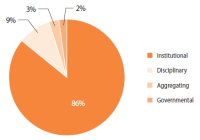

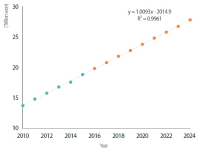

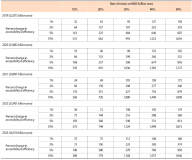


Abstract
An insider threat is a threat that comes from people within the organization being attacked. It can be described as a function of the motivation, opportunity, and capability of the insider. Compared to managing the dimensions of opportunity and capability, assessing one’s motivation in committing malicious acts poses more challenges to organizations because it usually involves a more obtrusive process of psychological examination. The existing body of research in psycholinguistics suggests that automated text analysis of electronic communications can be an alternative for predicting and detecting insider threat through unobtrusive behavior monitoring. However, a major challenge in employing this approach is that it is difficult to minimize the risk of missing any potential threat while maintaining an acceptable false alarm rate. To deal with the trade-off between the risk of missed catches and the false alarm rate, we propose a unified psycholinguistic framework that consolidates multiple text analyzers to carry out sentiment analysis, emotion analysis, and topic modeling on electronic communications for unobtrusive psychological assessment. The user scenarios presented in this paper demonstrated how the trade-off issue can be attenuated with different text analyzers working collaboratively to provide more comprehensive summaries of users’ psychological states.










